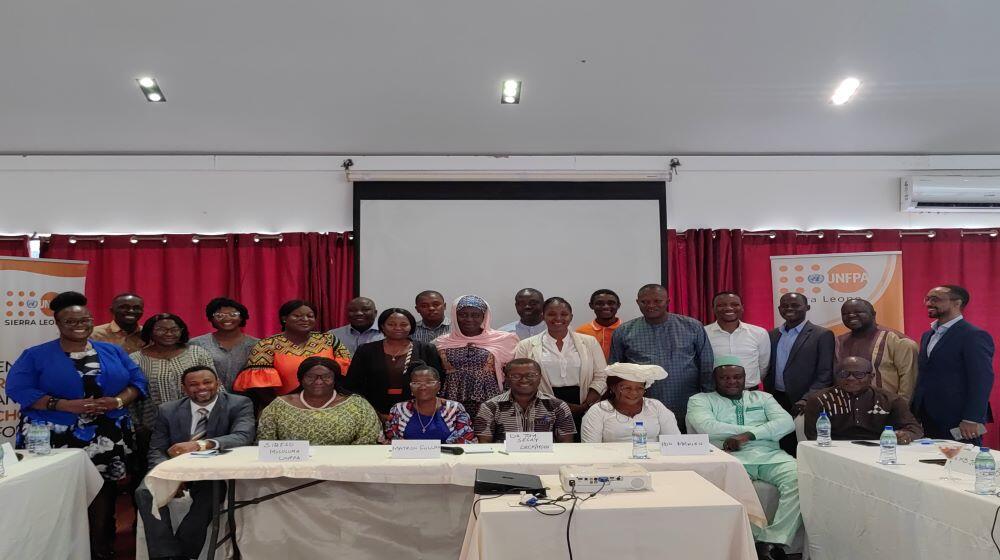FREETOWN, 24 November 2021- With support from UNFPA, the Ministry of Health and Sanitation held a stakeholders consultative meeting at The Place Resort, Tokeh, from 21 to 23 November 2022, to draft Sierra Leone’s 2030 family planning commitments in line with national priorities and UNFPA’s transformative agenda of accelerating progress towards ending unmet need for family planning.
Speaking at the event, UNFPA’s Deputy Representative, Ms. Sibeso Mululuma, said access to family planning services in Sierra Leone has greatly improved in the last decade, with a wide range of contraceptive options, almost universally offered across the various levels of the public health facilities.
“It is thus important to recognize the progress made and celebrate the large number of unintended pregnancies, unsafe abortions and maternal deaths averted that are attributable to the impact of family planning,” Ms. Mululuma noted.
UNFPA, she informed participants, is pursuing a new engagement approach with the Government of Sierra Leone to move from donation to a subsidisation model, whereby the Government, UNFPA, and other partners will be working in partnership towards progressively increasing domestic financing for reproductive health commodities procurement.
UNFPA, Ms. Mululuma said, is pleased to note the multi-year budget allocation for procurement of reproductive health commodities for 2023 to 2025 as outlined in the budget plan presented to the Parliament just before a week, clearly showing the determination to meet its commitments to the International Conference and Population and Development (ICPD) Plan of Action and Sustainable Development Goals.
In line with this, the three-day meeting reviewed a draft Compact Agreement to be signed by the Government of Sierra Leone and UNFPA, towards allocation of domestic funds for procurement of reproductive health commodities. This agreement, when signed, will serve to formalise the partnership between the Government and UNFPA through a mutual agreement that sets out the terms and conditions and clarifies the roles and responsibilities to help ensure translation of the commitments into action and puts family planning programmes in Sierra Leone on a sustainable path.
Director of Reproductive and Child Health, MoHS, Dr. Tom Sesay, in his remarks noted the relevance of family planning interventions to sustainable development especially for Sierra Leone where indicators of maternal mortality, adolescent and teenage pregnancy rates are high. “We cannot reverse this trend if we do not continue to work hard on important interventions such as scaling up on family planning availability and use in the country,” Dr. Sesay emphasised.
Chief Nursing Officer, Matron Mary Fullah in her remarks said that family planning access is essential to the wellbeing of every individual and called for a collective national approach, involving local councils and traditional leaders in the drive to raise public awareness on family planning.
The consultation was a success in charting Sierra Leone’s 2030 vision towards acceleration of progress towards ending unmet need for family planning. It identified objectives, key interventions and monitoring mechanisms to further integrate family planning into national socio-economic development plans, improve quality of services, address norms and beliefs that hinder access to services while promoting positive norms, and strengthen accountability and inter-sectoral collaboration.
When put into practice, these actions will have significantly reduced thousands of unintended pregnancies and maternal deaths which will translate into socio-economic benefits for women, families, communities and the country.
Media Contacts:
John Baimba Sesay | Web and Media Analyst | UNFPA Sierra Leone | Tel. +232 30953193 | e-mail: jsesay@unfpa.org


